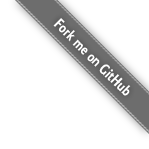// Build solver
SolverFactory<CloudBalance> solverFactory = SolverFactory.createFromXmlResource(
"org/.../cloudBalancingSolverConfig.xml");
Solver<CloudBalance> solver = solverFactory.buildSolver();
// Solve it
CloudBalance solvedCloudBalance = solver.solve(unsolvedCloudBalance);Release Notes 6.4
We are happy to announce a 6.4 Final release of OptaPlanner. OptaPlanner is a lightweight, embeddable planning engine written in Java™ to solve AI constraint optimization problems efficiently. Use cases include Vehicle Routing, Employee Rostering, Maintenance Scheduling, Task Assignment, School Timetabling, Cloud Optimization, Conference Scheduling and many more.
- Stable: Lots of unit, integration and stress tests
- Reliable: Used across the world in production
- Scalable: To billions of constraint matches with minimal RAM and CPU time
- Documented: Read the detailed reference manual and the many examples
- Open Source: Apache License 2.0
The RHDM version differs from the OptaPlanner version:
| RHDM version | OptaPlanner version |
|---|---|
| 7.8 | 7.39 |
| 7.9 | 7.44 |
| 7.1 | 7.48 |
| 7.11 | 8.5 (and 7.52) |
| 7.12 | 8.11 (and 7.59) |
| 7.13 | 8.13 (and 7.67) |
New and noteworthy
Generic API
The SolverFactory and Solver now optionally support a generic type parameter,
to avoid the awkward cast to your Solution implementation:
The old style still works too, of course.
Statistical benchmarking
Statistical benchmarking allows you to rerun your single benchmarks multiple times. This can be useful to eliminate influences of the environment and verify the results of your benchmarks.
The report visualizes the results of the runs in the "Best score" table, and also compares the results of sub single benchmarks for each problem benchmark in a box plot chart:

To enable it, add the following line with a positive integer as a parameter to your <inheritedSolverBenchmark>
or to individual <solverBenchmark> elements.
<inheritedSolverBenchmark>
<name>...</name>
<solver>
...
</solver>
<subSingleCount>N</subSingleCount>
</inheritedSolverBenchmark>Nearby Selection memory consumption reduced
When Nearby Selection is used in Local Search, it’s memory consumption is heavily reduced, especially when scaling out:

It can now scale above 10k+ entities on normal hardware, as long as any distributionSizeMaximum is configured.
Furthermore, it’s bootstrap performance is much better too for Local Search.
Kjar and KieContainer support
OptaPlanner now supports kjars, so it can consume a kjar produced by OptaPlanner Workbench or deploy a kjar to OptaPlanner Execution Server at runtime.
A kjar can now contain Solver configurations and the SolverFactory can now load them from it with a KieContainer.
This allows to load a solver configuration or score rules at runtime that are not in the original classpath:
KieServices kieServices = KieServices.Factory.get();
ReleaseId releaseId = kieServices.newReleaseId("org.nqueens", "nqueens-kjar", "1.0.0");
KieContainer kieContainer = kieServices.newKieContainer(releaseId);
SolverFactory<NQueens> solverFactory = SolverFactory.createFromKieContainerXmlResource(
kieContainer, "org/nqueens/solverConfig.solver");
Solver<NQueens> solver = solverFactory.buildSolver();A ksession defined in META-INF/kmodule.xml can now be referenced from a Solver configuration:
<solver>
...
<scoreDirectorFactory>
...
<ksessionName>nqueensKsession</ksessionName>
</scoreDirectorFactory>
</solver>New example: Meeting scheduling
Assign meetings of different durations to starting times and rooms.
Also see the blog about time scheduling design patterns.
Other improvements
-
Benchmark warm-ups now run in parallel threads, just like the actual benchmarks.
-
Apache Camel’s camel-optaplanner 2.16 supports async solving, daemon mode and ProblemFactChange processing. Contributed by Bilgin Ibryam.
-
A
SolverFactorycan now be cloned withcloneSolverFactory()to concurrently configure it dynamically per user request without parsing the solver config XML each time. -
The examples application has switched to a more modern look and feel.
-
Several design patterns to deal with scheduling in time have been documented in the manual.
-
New Construction Heuristic: Allocate To Value From Queue
-
Various bugs resolved. See our issue tracker.
Workbench and Execution server
As mentioned in our blog, we’ve built first version of OptaPlanner Workbench and OptaPlanner Execution Server. Take a look at what it can do:
To try out OptaPlanner Workbench, download and deploy the KIE Workbench war and create a user with the role plannermgmt.
Note that a user with the admin role currently doesn’t see OptaPlanner screens yet.
To try out OptaPlanner Execution Server, download and deploy the KIE Execution Server war and use the KIE and OptaPlanner REST API (both are currently documented in the Drools documentation). It’s enabled by default (although it can be disabled with a configuration property).
Upgrade your code to 6.4
The best and easiest way to upgrade to this new version of OptaPlanner is by following the upgrade recipe.
New features in older releases
Read the previous release notes to learn about the new and noteworthy in previous releases.
-
Wed 6 September 2023
-
Thu 27 April 2023
Anna Dupliak
-
Mon 24 April 2023
Radovan Synek
-
Tue 21 February 2023
Lukáš Petrovický
-
Tue 15 November 2022
Geoffrey De Smet
-
Wed 9 November 2022
Radovan Synek
-
Tue 6 September 2022
Geoffrey De Smet
-
Thu 9 June 2022
Radovan Synek
-
The Vehicle Routing Problem
Fri 23 September 2022
Geoffrey De Smet
-
Introduction to OptaPlanner AI constraint solver
Thu 25 August 2022
Anna Dupliak
-
On schedule: Artificial Intelligence plans that meet expectations
Sat 23 July 2022
Geoffrey De Smet
-
Host your OptaPlanner app on OpenShift (Kubernetes)
Mon 7 February 2022
Geoffrey De Smet
-
OptaPlanner - A fast, easy-to-use, open source AI constraint solver for software developers
Mon 31 January 2022
-
Order picking planning with OptaPlanner
Fri 31 December 2021
Anna Dupliak
-
AI lesson scheduling on Quarkus with OptaPlanner
Thu 18 November 2021
Geoffrey De Smet


